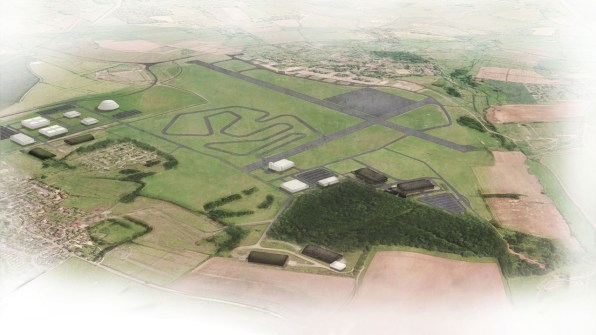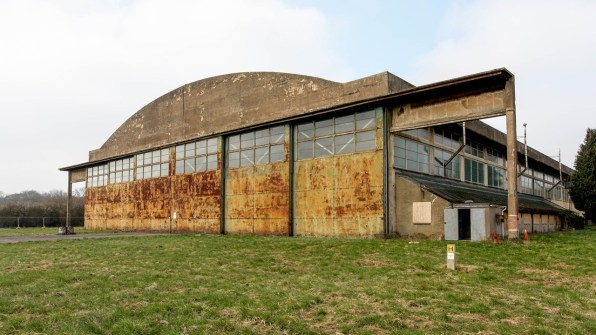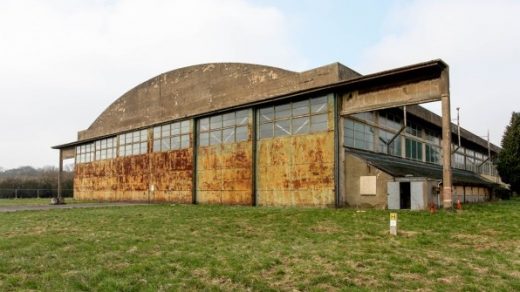Dyson wants to build a $260M hub to test its secretive EV
A historic British airfield, which was home base to 1,000 aircraft by the end of World War II, is on its way to a second life: as an electric car test track for the vacuum company Dyson. Today, Dyson submitted plans to the local U.K. government to transform 750 acres of the airfield into a $260 million testing ground for electric vehicles–a step closer to its goal of having its cars on the road by 2021.
It’s an ambitious plan for the 27-year-old British company, which mostly focused on building vacuums until announcing it would be spending $2.8 billion to build an electric car in 2017. Much of Dyson’s bet on electric cars is based on its purported development of solid state batteries, which are the next big technological advance beyond today’s commonly used lithium batteries. But building a car from scratch, let alone mass manufacturing one, is no easy task. This test track is the first big piece of infrastructure Dyson is building to support its automotive dreams.

Dyson is working with architect Chris Wilkinson of Wilksinson/Eyre, who already restored two hangars that were originally built in the 1930s and where the 400 members of its automotive team now work. The proposed test track will be right next to the hangars, and will be designed with the express purpose of testing the maneuverability, breaking, steering, and overall capability of its prototypes. The proposal, which Dyson submitted to the local Wiltshire council today for consideration, also includes an off-roading section to evaluate how vehicles handle mixed terrain, steep and curved areas to test how the car handles more challenging driving conditions, and a fast track, to assess performance at top speeds.
The entire site is located at Hullavington Airfield, which was built in 1937, just before World War II, where it quickly became a hub for British air operations. It closed in 1992, when the British army took over the site. Its buildings, influenced by the Bauhaus as well as architects like Le Corbusier, were designated a conservation site by nonprofit Historic England, which describes it as embodying “to a unique degree, the improved architectural quality associated with the post-1934 expansion of the [Royal Air Force].”

Dyson bought Hullavington in 2016 and announced its intentions to build a “radically different” electric vehicle in fall 2017, which was met with general skepticism from other car companies. But the current plans to build a test track indicate that Dyson actually has something to test after three years of development–which better be the case if the company wants to meet its 2021 goal.
Fast Company , Read Full Story
(25)


